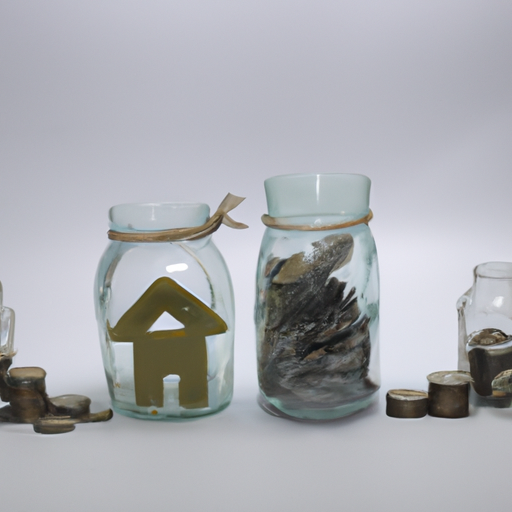
How to Start Investing in Real Estate with Little Money
Introduction
So you want to dip your toes into the exciting world of real estate investing, but you don’t have a lot of money to spare? Don’t worry, you’re not alone. Many people think that to invest in real estate, you need substantial capital, but that’s simply not true. In this article, we’ll explore some strategies and tips on how to start investing in real estate with little money.
1. Research and Education
Before you jump into any investment, it’s important to do your due diligence. Spend time researching and educating yourself about the real estate market, local trends, and investment strategies. Attend seminars, read books, and follow reputable real estate blogs to gain insights from experts. The more knowledge you acquire, the better equipped you’ll be to make informed decisions.
2. Start Small with Wholesaling
If you have limited funds, wholesaling can be a great way to enter the real estate market. Wholesaling involves finding distressed properties at a low cost and then assigning the contract to another investor for a fee. Essentially, you act as the middleman, connecting motivated sellers with cash buyers. While not as profitable as other real estate ventures, wholesaling can generate quick cash and provide you with valuable experience.
3. Explore Crowdfunding and Real Estate Investment Trusts (REITs)
Technology has made it easier for small investors to participate in real estate through crowdfunding platforms. These platforms allow multiple investors to pool their money together, enabling them to collectively invest in properties that would otherwise be out of their budget. Real Estate Investment Trusts (REITs) are another option. REITs pool investor funds to purchase income-generating properties, distributing profits among shareholders.
4. Partner with Others
Another way to enter the real estate market with limited funds is by partnering with others. Seek out like-minded individuals or experienced investors who are open to collaboration. By pooling your resources, skills, and funds, you can collectively invest in properties. This could involve joint ventures, partnerships, or even participating in real estate investment clubs. Remember to choose your partners wisely and have a clear agreement in place.
5. House Hacking
If you’re open to living in the property you invest in, house hacking can be an excellent strategy. House hacking involves purchasing a multifamily property, living in one unit, and renting out the others. The rental income from the tenants can help cover your mortgage and other expenses, allowing you to build equity while reducing your living costs. Eventually, as you save money, you can invest in additional properties and repeat the process.
6. Consider Lease Options or Seller Financing
Lease options and seller financing are creative ways to acquire properties without needing a large down payment. With a lease option, you lease a property with the option to buy it at a later date. This gives you time to save up and potentially secure financing in the future. Seller financing, on the other hand, involves negotiating with the seller to make payments on the property directly. This often eliminates the need for traditional bank mortgages and can be more flexible for buyers.
7. Improve Your Credit Score
Your credit score plays a crucial role when it comes to securing financing for real estate investments. Pay your bills on time, reduce your debt, and address any negative aspects impacting your credit report. By improving your credit score, you’ll increase your chances of qualifying for favorable loans or securing better terms, making it easier to invest in real estate.
Conclusion
Starting your real estate investment journey with little money may seem challenging, but with the right strategies and mindset, it’s definitely possible. Prioritize education, explore different investment options, consider partnerships, and leverage creative financing methods. Remember, taking calculated risks and being patient are key in the world of real estate. So go out there, learn, connect with fellow investors, and take your first steps towards building a successful real estate portfolio!